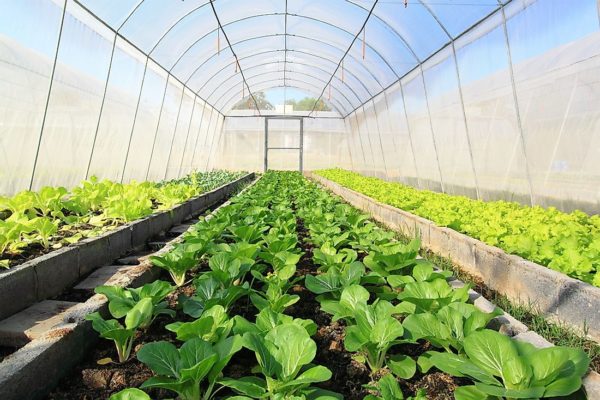rajkotupdates.news : Indian CEOs expect economic growth
According to a survey by PwC India, a global professional services network, conducted in 2021, Indian CEOs are more optimistic about the economy’s growth prospects than their global peers. The survey revealed that 62% of Indian CEOs are very confident about their company’s revenue growth in the next 12 months, and 87% expect global economic growth to improve or remain stable.
Additionally, India’s economy has shown resilience in recent years, despite the challenges posed by the COVID-19 pandemic. India’s GDP growth rate is projected to rebound to over 9% in the fiscal year 2021-22, according to the Reserve Bank of India. This growth is being driven by various factors such as government policies, strong domestic consumption, and a rebound in exports.
57% of CEOs believe the nation’s economic growth will improve over the next 12 months: PwC survey
Thank you for sharing this information. It appears that the PwC survey you are referring to is the PwC India CEO Survey 2021, which was conducted among 100 CEOs in India.
According to the survey, 57% of the CEOs believe that the nation’s economic growth will improve over the next 12 months. This indicates a positive outlook among the CEOs toward the country’s economic growth prospects.
The survey also revealed that Indian CEOs are more optimistic about their company’s revenue growth than their global peers, with 62% of Indian CEOs being very confident about their company’s revenue growth in the next 12 months.
Overall, the survey suggests that Indian CEOs are optimistic about the country’s economic growth prospects, despite the challenges posed by the COVID-19 pandemic.
Indian CEOs believe economic growth will improve over next 12 months: Survey
Thank you for sharing this information. It seems that Indian CEOs are generally optimistic about the country’s economic growth prospects shortly.
As I mentioned earlier, the PwC India CEO Survey 2021 found that 57% of CEOs believe that the nation’s economic growth will improve over the next 12 months. This indicates a positive outlook among the CEOs toward the country’s economic growth prospects.
Moreover, the survey also revealed that Indian CEOs are more optimistic about their company’s revenue growth than their global peers, with 62% of Indian CEOs being very confident about their company’s revenue growth in the next 12 months.
These findings suggest that despite the challenges posed by the COVID-19 pandemic, Indian CEOs remain positive about the country’s economic growth prospects, which is a good sign for the overall economic health of the country.
Indian CEOs top global average on plans to cut operating costs: Global CEO Survey
If the news is true, it suggests that Indian CEOs are more likely than their global counterparts to focus on cost-cutting measures. While this may be a reflection of the economic climate in India or the specific challenges faced by Indian companies, it is important to note that cost-cutting measures can have both positive and negative consequences.
On the one hand, reducing operating costs can improve a company’s profitability and help it weather economic downturns. On the other hand, excessive cost-cutting can harm a company’s long-term competitiveness and reputation. CEOS need to strike a balance between reducing costs and investing in innovation, growth, and sustainability.
Indian CEOs & Economic Growth
Indian CEOs have high expectations for economic growth in the coming years. With a stable government and steady reforms, many businesses are optimistic about their prospects in the country. In fact, according to a survey conducted by KPMG, 74% of Indian CEOs are confident about their company’s revenue growth over the next three years.
The Indian economy has been steadily growing over the past few years, with a GDP growth rate of 6.8% in 2018-2019. This has been driven by various sectors such as manufacturing, agriculture, and services. Many Indian companies have also expanded their operations overseas to tap into new markets and diversify their businesses.
However, there are still challenges that need to be addressed such as infrastructure development and ease of doing business. The government has taken steps to address these issues through initiatives like Make in India and Digital India. As long as these efforts continue, Indian CEOs can remain hopeful for sustained economic growth in the future.
Challenges Faced by the Indian Economy
One of the major challenges faced by the Indian economy is its high level of income inequality. While India has experienced significant economic growth in recent years, much of this growth has been concentrated in certain sectors and geographic areas, leaving many people behind. This has led to a growing sense of frustration and disillusionment among large segments of the population, which could pose a significant threat to long-term stability if not addressed.
Another challenge facing the Indian economy is its reliance on certain industries, particularly agriculture, and manufacturing. While these industries have played an important role in driving economic growth over the past several decades, they are also vulnerable to fluctuations in global markets and changing consumer preferences. As such, it will be important for India to diversify its economy and invest in new industries if it hopes to sustain long-term growth.
Finally, corruption remains a significant challenge for the Indian economy. Despite efforts by government officials to crack down on corrupt practices, bribery and other forms of graft continue to hinder progress across numerous sectors. Addressing corruption will require sustained effort from both government officials and private citizens alike if India hopes to achieve its full potential as a global economic powerhouse.
Impact of COVID on the Indian Economy
Despite the dire impact of COVID-19 on the Indian economy in 2020, CEOs of some leading companies believe that India is poised for growth in 2021. According to a survey conducted by KPMG in January 2021, over 75% of CEOs said that they are optimistic about growth prospects and expect their companies’ revenues to grow this year. The survey also revealed that technology adoption, innovation, and upskilling would be key drivers for businesses.
However, it is important to note that the impact of COVID-19 on the Indian economy has been significant. The pandemic has disrupted global supply chains, led to job losses, and affected multiple sectors including tourism, hospitality, and aviation. Despite the government’s efforts to revive the economy through various measures such as stimulus packages and reforms, many small businesses continue to struggle.
In conclusion, while there are positive signs for economic recovery in India post-COVID-19 pandemic period with technological advancements playing a major role; policymakers and business leaders must continue working towards creating an enabling environment for businesses across all sectors so not only driving growth but also creating jobs, especially at micro-levels.
Impact of Other Factors on the Indian Economy
Apart from the global economic situation, several other factors impact the Indian economy. One of these factors is the performance of key sectors such as agriculture, manufacturing, and services. The agricultural sector in India employs a significant proportion of the population and contributes to a major chunk of the GDP. Any fluctuations in this sector or disruption in supply chains can have a ripple effect on the overall economy. Similarly, any slowdown in manufacturing or services sectors can also impact economic growth.
Another factor that plays a crucial role in shaping the Indian economy is government policies and regulations. Policies related to taxation, foreign investment, trade barriers, etc., directly influence business operations and thus have an impact on economic growth. For instance, if taxes are high for businesses or if regulations make it difficult for foreign companies to invest in India, it could affect job creation and overall growth.
In conclusion, while global economic conditions do play an important role in determining India’s economic trajectory; it is important to take into account other factors such as sectoral performance and government policies while evaluating its growth potential. Policymakers need to assess these additional influences carefully while making decisions that will have long-term implications for India’s economy.
Expectations of Indian CEOs
Indian CEOs are known to have high expectations for economic growth in their country. They are often seen as being optimistic about the future of India and believe that there is potential for significant growth in various sectors such as finance, technology, healthcare, and education. This optimism is reflected in their strategies and decision-making processes which focus on leveraging emerging opportunities.
The expectations of Indian CEOs also influence the overall business environment in the country. Their positive outlook can inspire other businesses to invest more heavily in India, which can further fuel economic growth. However, it should be noted that these expectations come with certain challenges such as navigating regulatory frameworks, managing talent shortages, and dealing with geopolitical risks.
Overall, Indian CEOs play a crucial role in shaping the future of India’s economy through their expectations and actions. While some may view their optimism as unrealistic or overly ambitious at times, it has undoubtedly helped drive progress toward a brighter future for all Indians.
Outlook for Economic Growth
According to a survey conducted by the Confederation of Indian Industry (CII), Indian CEOs are optimistic about the country’s economic growth prospects. The majority of respondents believe that India’s GDP will grow between 6-7% in the current fiscal year, with some even predicting double-digit growth. The positive outlook is driven by several factors, including government reforms, rising consumer demand, and increased foreign investment.
The Indian government has implemented several measures to boost economic growth, such as reducing corporate tax rates and easing restrictions on foreign investment. These policies have already begun to yield results, with India’s GDP growing at a rate of 4.5% in Q2 2019-20 – the highest in six quarters. Furthermore, consumer demand has remained robust despite global trade tensions, which bodes well for future growth.
However, some challenges could impede economic growth in India. These include structural issues like high unemployment rates and slow progress on infrastructure development projects. Additionally, global uncertainties such as Brexit and US-China trade tensions could also impact India’s economy negatively if they escalate further. Nevertheless, overall sentiment remains positive for Indian CEOs who remain confident about the country’s long-term potential for economic expansion.
Positive Economic Prospects
Indian CEOs have expressed positive expectations for the country’s economic growth in 2021. According to a recent survey by Deloitte Touche Tohmatsu India LLP, nearly 80% of Indian CEOs believe that the economy will improve over the next year. This is a significant increase from just 15% who felt this way in the previous year’s survey.
One factor contributing to this optimism is the government’s efforts to boost infrastructure spending and attract foreign investment. Additionally, India has been able to control the spread of COVID-19 relatively well, which has helped to mitigate some of the pandemic’s economic impact. As businesses continue to adapt to new ways of operating and consumer demand gradually increases, there are reasons for hope that India can emerge stronger from this crisis.
While challenges undoubtedly remain, Indian CEOs’ positive outlook on economic prospects is an encouraging sign for both domestic and international investors. With continued policy support and successful containment of COVID-19, India could be poised for an impressive recovery in the post-pandemic era.
Conclusion
In conclusion, Indian CEOs have high expectations for economic growth in the coming years. Despite the challenges posed by the COVID-19 pandemic and a slowdown in global trade, these leaders remain optimistic about India’s prospects. Many believe that the country has significant potential for development and growth, particularly in sectors such as digital technology, healthcare, and renewable energy.
However, achieving sustained economic growth will require significant investment in infrastructure, education, and innovation. The Indian government has taken steps to address these concerns through initiatives such as Make in India and Digital India. These programs aim to promote domestic manufacturing, improve digital connectivity across the country and create jobs.
Overall, while there are still challenges ahead for India’s economy to reach its full potential – including political instability and slow progress on reforms – many Indian CEOs remain confident that with a continued focus on building a strong foundation for sustainable growth through targeted investments and policies; India can emerge as a major global player over time.
Also Read: wellhealthorganic.com:5 amazing health benefits of guava








